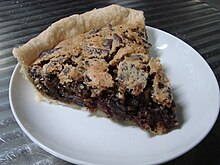
Louisville is the most populous city in the Commonwealth of Kentucky, sixth-most populous city in the Southeast, and the 27th-most-populous city in the United States. By land area, it is the country's 24th-largest city, although by population density, it is the 265th most dense city. Louisville is the historical county seat and, since 2003, the nominal seat of Jefferson County, on the Indiana border.

Rupp Arena at Central Bank Center is an arena located in downtown Lexington, Kentucky, United States. Since its opening in 1976, it has been the centerpiece of Central Bank Center, a convention and shopping facility owned by an arm of the Lexington-Fayette Urban County Government, which is located next to the Lexington Hyatt and Hilton hotels. Rupp Arena also serves as home court to the University of Kentucky men's basketball program, and is named after legendary former Kentucky coach Adolph Rupp with an official capacity of 20,500. In 2014 and 2015, in Rupp Arena, the Kentucky Wildcats men's basketball team was second in the nation in college basketball home attendance. Rupp Arena also regularly hosts concerts, conventions and shows.

Henry Watterson, the son of a U.S. Congressman from Tennessee, became a prominent journalist in Louisville, Kentucky, as well as a Confederate soldier, author and partial term U.S. Congressman. A Democrat like his father Harvey Magee Watterson, Henry Watterson for five decades after the American Civil War was a part-owner and editor of the Louisville Courier-Journal, which was founded by Walter Newman Haldeman and would be purchased by Robert Worth Bingham in 1919, who would end the Pulitzer Prize-winning journalist's association with the paper.
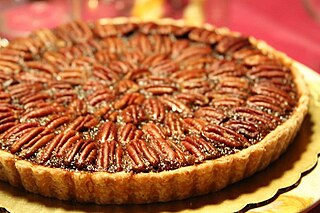
Pecan pie is a pie of pecan nuts mixed with a filling of eggs, butter and sugar. Variations may include white or brown sugar, cane syrup, sugar syrup, molasses, maple syrup, or honey. It is commonly served at holiday meals in the United States and is considered a specialty of Southern U.S. origin. Most pecan pie recipes include salt and vanilla as flavorings. Pecan pie may be served with whipped cream, vanilla ice cream or hard sauce.

The Kentucky Derby Festival is an annual festival held in Louisville, Kentucky, during the two weeks preceding the first Saturday in May, the day of the Kentucky Derby. The festival, Kentucky's largest single annual event, first ran from 1935 to 1937, and restarted in 1956.

Benedictine or benedictine spread is a spread made with cucumbers and cream cheese. Invented near the beginning of the 20th century, it was originally and still is used for making cucumber sandwiches, but in recent years it has been used as a dip or combined with meat in a sandwich. This spread can be obtained pre-made from some Louisville, Kentucky-area grocery stores.

Shoney's is an American restaurant chain headquartered in Nashville, Tennessee. As of April 2024, the company operates 58 locations in Alabama, Florida, Georgia, Kentucky, Louisiana, Missouri, North Carolina, Ohio, Oklahoma, Pennsylvania, South Carolina, Tennessee, Virginia, and West Virginia.
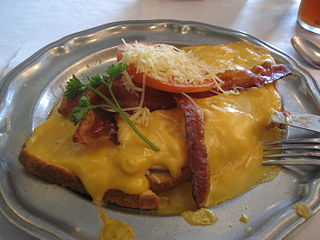
A Hot Brown sandwich is an American hot sandwich originally created at the Brown Hotel in Louisville, Kentucky, by Fred K. Schmidt in 1926. It is a variation of traditional Welsh rarebit and was one of two signature sandwiches created by chefs at the Brown Hotel shortly after its founding in 1923. It was created to serve as an alternative to ham and egg late-night dinners.
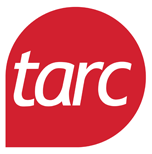
The Transit Authority of River City (TARC) is the major public transportation provider for Louisville, Kentucky and parts of southern Indiana, including the suburbs of Clark County and Floyd County. TARC is publicly funded and absorbed private mass-transit companies in Louisville, the largest of which was the Louisville Transit Company. In 2023, the system had a ridership of 6,655,200.

Thunder Over Louisville is an annual airshow and fireworks display in Louisville, Kentucky, serving as the kickoff event of the Kentucky Derby Festival. It is held on a Saturday in April preceding the Kentucky Derby, the first Saturday in May, usually by two weeks. For some time the largest annual fireworks display in North America, the event remains one of the largest.

The cuisine of Kentucky mostly resembles and is a part of traditional Southern cuisine. Some common dinner dishes are fried catfish and hushpuppies, fried chicken and country fried steak. These are usually served with vegetables such as green beans, greens, pinto beans slow-cooked with pork as seasoning and served with cornbread. Other popular items include fried green tomatoes, cheese grits, corn pudding, fried okra, and chicken and dumplings, which can be found across the commonwealth.

Fisherville is a neighborhood of Louisville, Kentucky, United States, which is centered along Taylorsville Road and Finchville Road. It was originally named Curreys after Edward Currey, who opened a post office in 1833. In 1847, it was renamed after Robert Fisher who had died two years earlier and operated a mill on Floyds Fork with his father, John. The area became more commercial in the late 19th and early 20th centuries due to the opening of railroad tracks and the discovery of a mineral water well. Visitors came for the therapeutic value of the mineral water, but when the well went dry in 1914 the area began its reversion to being a primarily residential area. Fisherville is also home of one of Louisville's great Basketball coaches, Denny Crum, who coached for the University of Louisville for 30 years attaining 2 Men's Basketball Championships.
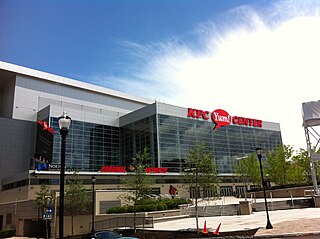
The KFC Yum! Center is a multi-purpose indoor arena in Downtown Louisville, Kentucky, United States. It is named after the KFC restaurant chain and Yum! Brands, the parent company of KFC. Adjacent to the Ohio River waterfront, it is located on Main Street between 2nd and 3rd Streets and opened on October 10, 2010. The arena is part of a $450 million project that includes a 975-car parking structure and floodwall.
The following is a timeline of the history of the city of Louisville, Kentucky, USA.
Ronni Lundy, is an American author and editor, whose work focuses on traditional Southern American foods, Appalachian foods, and music.

Edward Lee is a Brooklyn-born celebrity chef, author and restaurateur. He has made numerous television appearances on shows including The Mind of a Chef and Top Chef as well as a judge on Gordon Ramsay's Culinary Genius. He is a nine-time James Beard Award nominee, owns multiple restaurants throughout the United States and the Caribbean, and is the author of two award-winning books Buttermilk Graffiti and Smoke and Pickles.
Lettice Pierce Bryan (1805–1877) was an American writer, who wrote The Kentucky Housewife, a cookbook originally published in 1839.

Claire Saffitz is an American food writer, chef, and YouTube personality. Until mid-2020, she was a contributing editor at Bon Appétit magazine and starred in several series on the Bon Appétit YouTube channel, including Gourmet Makes, in which she created gourmet versions of popular snack foods by reverse engineering them. Since leaving the company, she has published two cookbooks, Dessert Person and What's for Dessert, which both became New York Times Best Sellers. She has continued work as a video host on her own YouTube channel and as a freelance recipe developer, including for New York Times Cooking.
Molly Baz is an American cook, recipe developer, and food writer. She was a senior food editor at Bon Appétit magazine and appeared frequently in videos for the magazine's YouTube channel before leaving in 2020. Baz has published two cookbooks, Cook This Book (2021) and More Is More (2023), both of which are New York Times Best Sellers.
